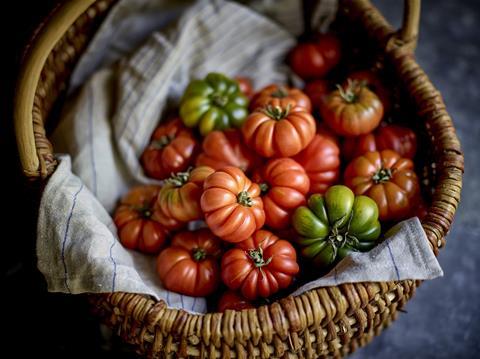Fruit and veg industry bucks trend, expressing uncertainty about sourcing extra SKUs from EU in 2025

The EU will remain a key trading partner for the UK food and drink industry despite the challenges imposed by Brexit, according to recent insights from UK supply chain professionals.
A survey, carried out on behalf of the European Commission, interviewed wholesalers, importers, producers and HORECA professionals across seven different food and beverage sectors. It revealed that the majority will continue to import from the EU over the next 12 months.
Respondents from the wine and dairy sectors said they were 100 per cent committed to sourcing additional SKUs from the EU over the coming year.
Meanwhile, beer and spirits (80 per cent), charcuterie and meat (80 per cent), and bakery (70 per cent) also showed a clear commitment to the EU.
By contrast, the fruit and vegetable sector, along with confectionary, showed the highest level of uncertainty or non-commitment. Both sectors only expressed a 30 per cent commitment to sourcing additional SKUs from the EU in 2025.
Veryan Bliss is the fresh produce advisor to the EU’s ‘More Than Only Food & Drink’ campaign, as well as MD of agribusiness consultancy Food Intelligence.
The campaign aims to champion the qualities of EU food and beverage products to UK food industry professionals, highlighting food safety, quality, authenticity, and sustainability.
“It is clear that the relationship between the UK and EU is incredibly important,” Bliss said. “In 2023, the UK was the number one destination for EU agri-food, accounting for 22 per cent of exports and with a value of €51.3 billion.
“The geographical diversity of the EU ensures a steady supply of seasonal produce and often complements the UK’s own growing patterns. When certain crops are out of season in the UK, EU producers support the offer, ensuring that UK retailers can offer a consistent, high-quality selection to consumers throughout the year.
“However, responses from fruit and vegetable industry professionals highlight the impact of controls for fresh produce, which have been complex and changeable.
“But with an easement on fresh produce checks now in place until July 2025, and with confirmation that several fruit and vegetable products previously deemed ‘medium risk’ have now been changed to ‘low risk’, there is an increased potential for UK importers to benefit from the quality of organically and sustainably grown produce from the EU.”
UK food and beverage industry respondents cited quality (95 per cent), pricing (81 per cent), authenticity (78 per cent) and sustainability (77 per cent) as the most important factors they consider when adding new SKUs to their product ranges.
In parallel, authenticity and tradition were voted the most popular characteristics of EU food and beverage products (79 per cent and 70 per cent, respectively).
Diversity (64 per cent), good taste (62 per cent), safety (59 per cent), and high quality (54 per cent) also ranked highly.
When it comes to the wider merits of EU food and drink, two-thirds of respondents (66 per cent) agreed that the EU’s Protected Designation of Origin (PDO), Protected Geographical Indication (PGI) and Organic labels are either ‘very important’ or ‘somewhat important’ to them when sourcing ingredients.
Overall recognition of the three labels within the UK industry is high – around two-thirds know what they are and what they mean. The European Organic Products label is the most widely recognised (93 per cent), while the PGI label is the least recognised, however recognition is still high (78 per cent).
The research was conducted in April 2024 against the backdrop of the UK government’s Border Trading Operating Model (BTOM). The BTOM sets out a new approach to security controls, with the aim of maintaining border security while minimising trade burdens.
“These insights demonstrate that despite the challenges and complexities of new cross-border trade agreements, the EU remains a valued partner and important resource for the UK’s food and drink industry and is likely to remain that way”, said Andrew Crumpton, founder of AMC Consulting and advisor to the ‘More Than Only Food & Drink’ campaign.



